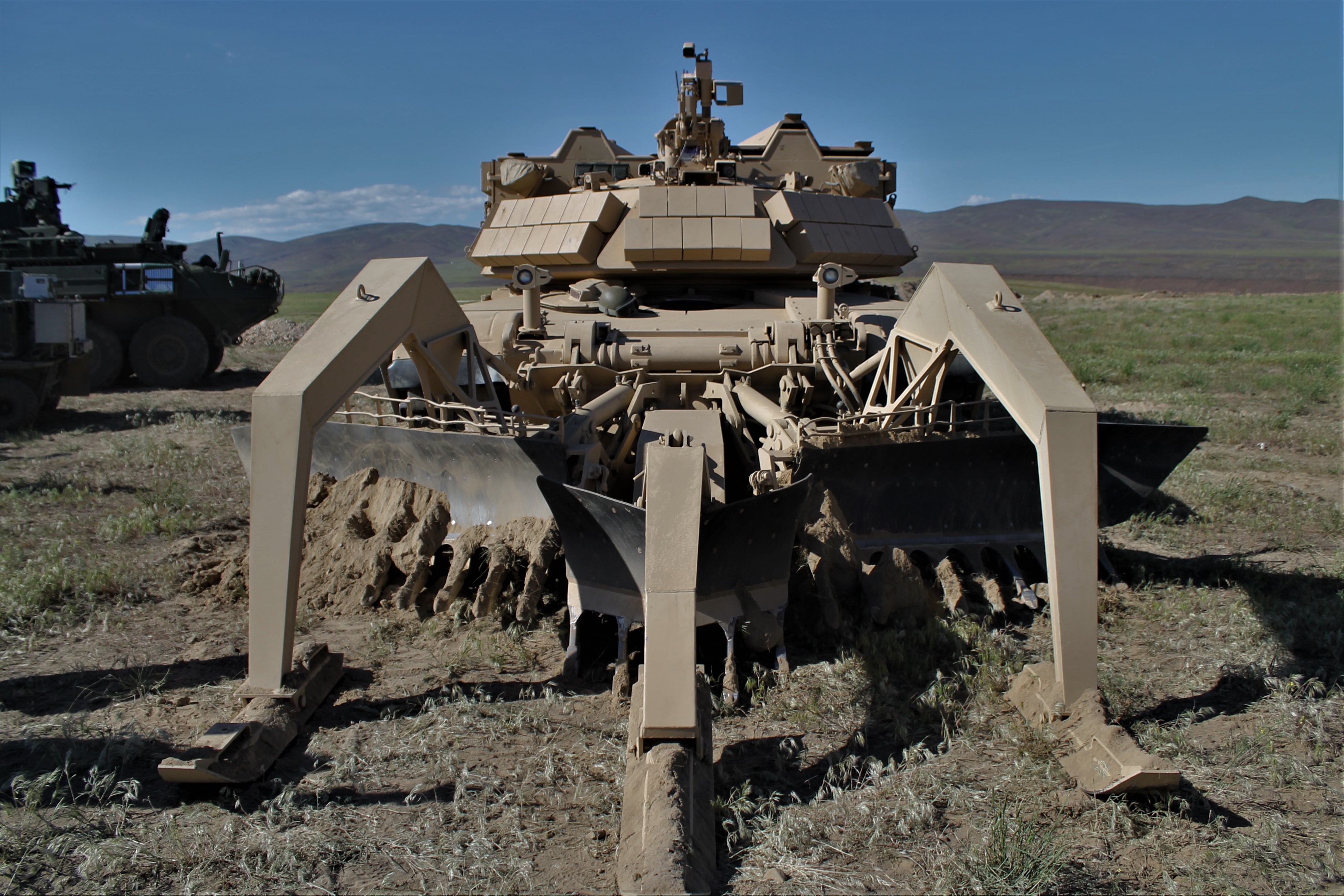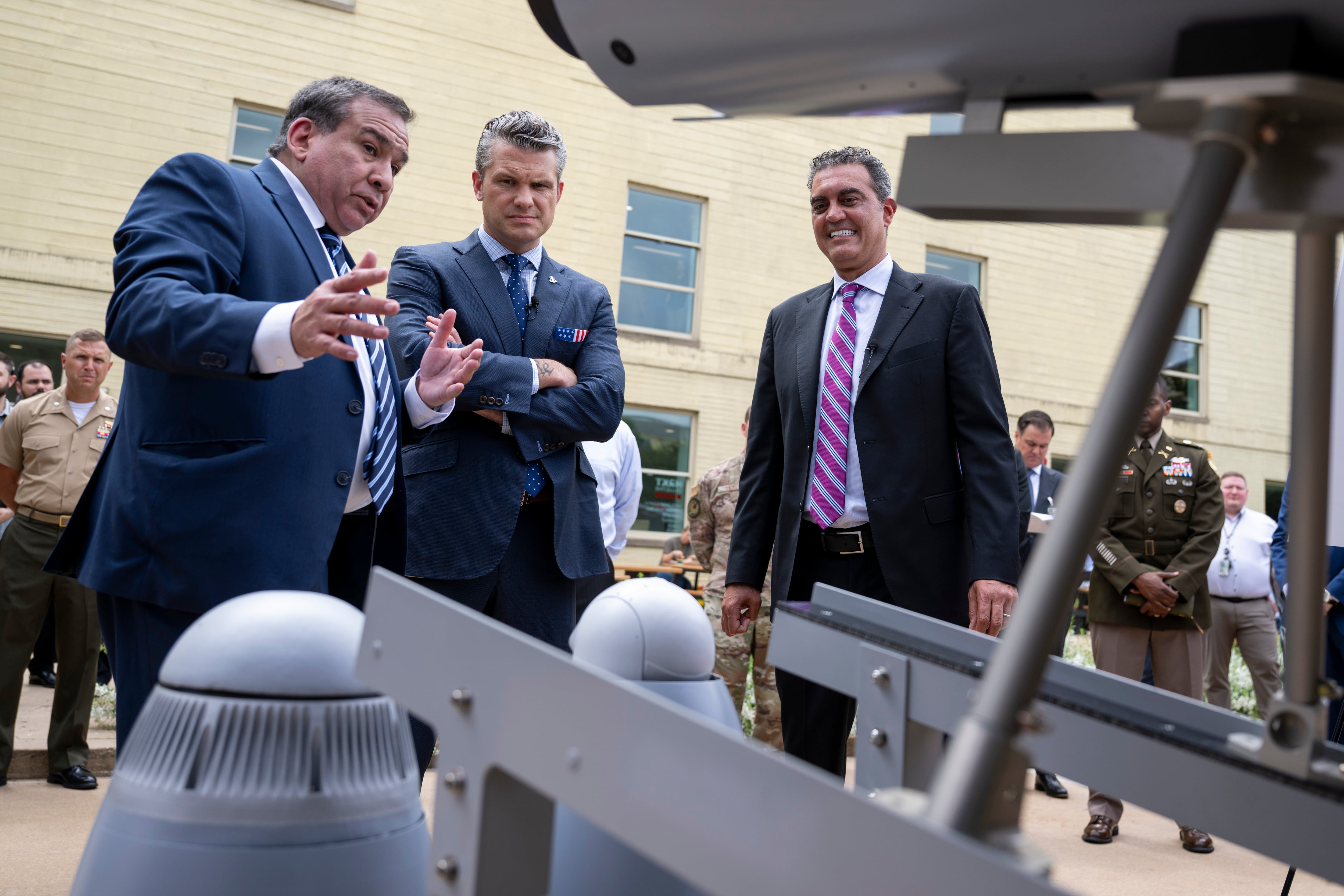For too long, the conversation on AI and militaries has been narrowly focused on autonomous weapons and the ethical issues that come with them. The time is ripe to take stock of the myriad of other ways that AI will impact security and military affairs.
Just as AI is dramatically changing a range of sectors in the civilian world, improving efficiency, reducing costs, and automating processes, there is no reason to believe that militaries, too, will not be joining the AI revolution.
Israel is a world leader in developing autonomous military capabilities, from Iron Dome interceptors to unmanned aerial vehicles to ground-based platforms – though all currently rely on human approval before kinetic firepower can be activated, in line with the values of the Israeli defense establishment.
The question of what will happen when adversaries deploy autonomous weapons that do not seek a person in the loop for approval to use lethal firepower looms on the horizon for all militaries defending democratic states.
It seems reasonable to believe that even those states that have set some limits on AI capabilities will encounter adversaries who have no qualms about doing so, putting the states that limit integrating AI for national security at a considerable disadvantage. Thus, it’s imperative for states to understand the full extent of what AI can do.
While autonomous weapons attract a lot of attention, much of the conversation about this technology is negative, causing analysts to overlook the positive application of AI in areas such as force protection and the reduction of civilian casualties.
The many benefits of artificial intelligence
Other AI functions – including optimizing chain-of-command communications, human-machine teaming in areas like logistics, and predicting adversary maneuvers – offer equally promising avenues. Many are already being developed by western militaries, including by the Israel Defense Forces.
As time goes by, military commanders will feel increasingly comfortable relying on this technology, just as consumers have in the civilian world. Whether AI is introduced in the civilian or military realm does not mean suspending human involvement or judgment, but rather, receiving a new tool to boost performance.
Military commanders will use AI to minimize the fog of war. While they will continue to make maneuver decisions, AI capabilities will augment their decision-making capabilities during battle by providing a more accurate picture of the reality on the ground and keeping to the speed of modern warfare, thanks to continuously updated sensor data.
AI technologies will also help decision-makers and analysts combat the effects of information overload, and to better organize and process growing data pools on enemy behavior. AI will not only alleviate this information clutter, but it will allow for forces to make predictions about future events and outcomes, allowing states to better prepare for war.
The use of AI to better understand an adversary is shaping up to be one of the most promising and fascinating aspects of this tool. This will enable faster, real-time gathering of information, detecting patterns, mapping out communication networks, and even better understanding of how the enemy ‘feels,’ in terms of its morale, by analyzing its language on social media and other platforms. These new AI capabilities amount to intelligence gathering 2.0.
This type of analysis can be extended to both military communications and social media activities by civilians in adversarial states, to better understand a nation’s will to fight based on societal trends on any given day. The will to fight remains the most critical factor in human warfare, and being able to identify when this will decrease, in real time, could prove enormously beneficial for decision-makers in the civilian and military worlds.
In the area of military logistics and maintenance, AI can create revolutionary cost-saving efficiency, which is why most militaries are prioritizing making progress on this front. Typically considered a more technical aspect, logistics will probably lead to the most radical changes in how militaries “do business.”
AI systems can also optimize the procurement process and automate supply chains. They can forecast the need to repair equipment and order resupplies while minimizing costs. They can also be used in personnel allocation by helping militaries figure out which soldier is best suited to what unit. And unlike other aspects of AI, these applications are unlikely to raise any significant legal or ethical issues.
AI-based technologies can also enhance the capabilities of individual soldiers, and this should not be seen as unethical or dangerous across the board. In the past, amphetamines and caffeine have been handed out to soldiers for similar purposes.
What are the applications for AI in defense?
Just as limiting blood loss and boosting resistance to extreme conditions are worthy goals to help soldiers, providing them with new situational awareness and command capabilities are equally legitimate objectives. Human enhancement calls for certain limits – but those have yet to be (publicly) set. Such limits should consider force protection and the preservation of a soldier’s autonomy to choose to undergo a given enhancement, whether it can be reversed, and if it poses long-term health risks.
At the strategic level, AI can boost the capabilities of air defense systems. Emerging weapons, such as hypersonic missiles, can avoid detection from defense systems due to their speed. Air defense systems integrated with AI processing capabilities will be able to properly detect and intercept these incoming missiles.
In the area of information warfare, AI can, of course, help fabricate deep fakes and spread misinformation. Ironically, it can also help governments quickly verify information or recognize efforts by a hostile actor at shaping public perception in a harmful or disruptive manner.
This could give NATO states an ability to know, in real-time, if Russia is trying to use fake news to destabilize its security environment and threaten the alliance.
Ultimately, such capabilities extend far beyond the area of autonomous weapons and fears of ‘killer robots.’ The security community must broaden its grasp of AI capabilities and acknowledge positive as well as disruptive AI applications.
Dr. Daphné Richemond-Barak is a MirYam Institute publishing expert and Associate Professor at the Lauder School of Government, Diplomacy and Strategy at Reichman University in Israel.
Have an Opinion?
This article is an Op-Ed and the opinions expressed are those of the author. If you would like to respond, or have an editorial of your own you would like to submit, please email C4ISRNET Senior Managing Editor Cary O’Reilly.





